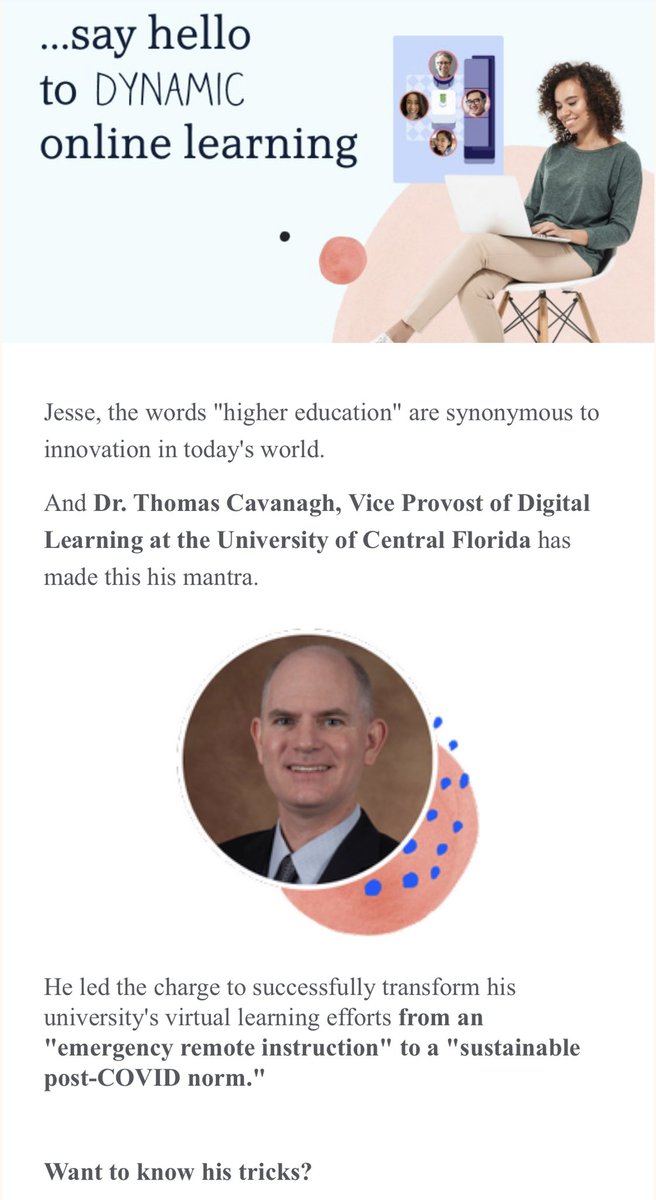
Looking at the Winter/Spring plans from various #edu institutions, I'm increasingly aware of the (often bad) assumptions being made about face-to-face and online teaching and learning. We need to start from a place of care -- for students and teachers, otherwise there's no point.
"Make sure to teach your courses at your scheduled times. We expect courses to be synchronous unless previously scheduled otherwise."
My online courses offer opportunities for synchronous engagement but don't require it. Asynchronous has distinct benefits, especially right now.
My online courses offer opportunities for synchronous engagement but don't require it. Asynchronous has distinct benefits, especially right now.
Even if you're trying to closely replicate the work of face-to-face on-ground courses, synchronous online isn't the thing. Asynchronous with optional opportunities for synchronous engagement does a better job of "simulating" what we do in regularly scheduled face-to-face courses.
We should not be trying to neat and tidily replicate online what we do in on-ground courses. In 20+ years of teaching and online teaching, I've never seen that work. We have to think critically about the unique affordances of online and face-to-face and work from there.
When we return to face-to-face (after 2 weeks fully online), my institution is encouraging seating charts (and requiring it for classes over 20), which presumes students in my face-to-face classes would be sitting in the same spot for the entire class period. They usually don't.
I structure class sessions as seminar-style discussions. That's harder socially-distanced with masks than it is via Zoom or text-chat (in Slack, Teams, or Discord). This Winter/Spring, I'll use a project, activity-focused approach for (optional) face-to-face sessions.
Most of our interaction will happen online in asynchronous discussion. I'm planning to use Discord, which can give the feeling of synchronicity, even when students engage at any time throughout the day, because multiple students are typically online at the same time.
We need to take advantage of the best parts of online and face-to-face, rather than trying to cram square pegs into round holes. Use face-to-face for critical engagement with a self-selected group. Use online for asynchronous engagement, sharing work, and "lectures."
And, most importantly, don't require students to do anything that makes them feel unsafe. That is not humane and simply not pedagogically effective.
In this, I don't care about the requirements of an institution. Mitigating harm is a necessary precursor to the work of teaching.
In this, I don't care about the requirements of an institution. Mitigating harm is a necessary precursor to the work of teaching.
As a teacher, my job is to advocate for students -- to stand in the gap between students and institutional policies that do harm. Of course, I am also precarious, and so I am left to rely on administrators to stand in the gap for me.
• • •
Missing some Tweet in this thread? You can try to
force a refresh




